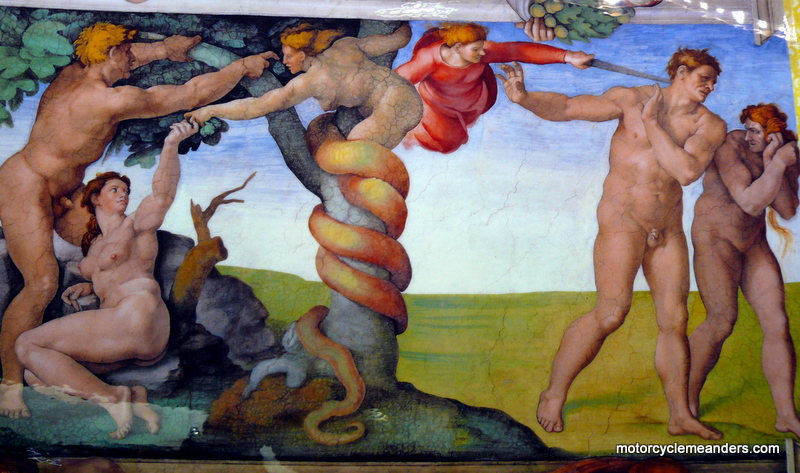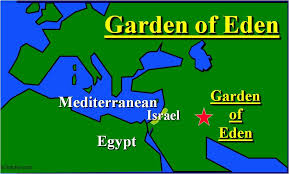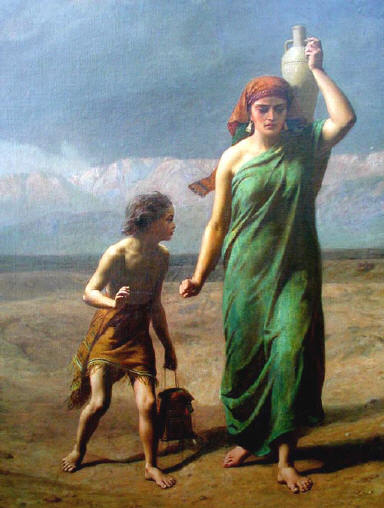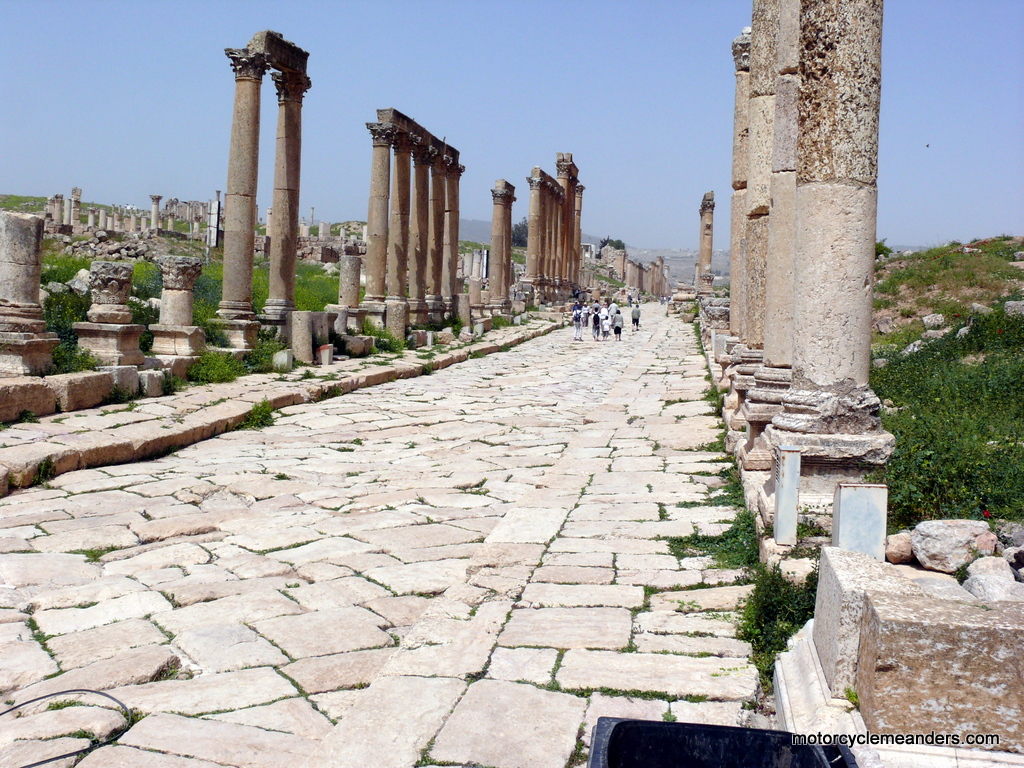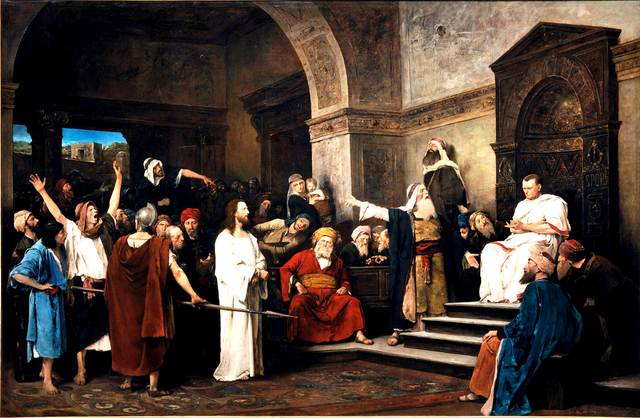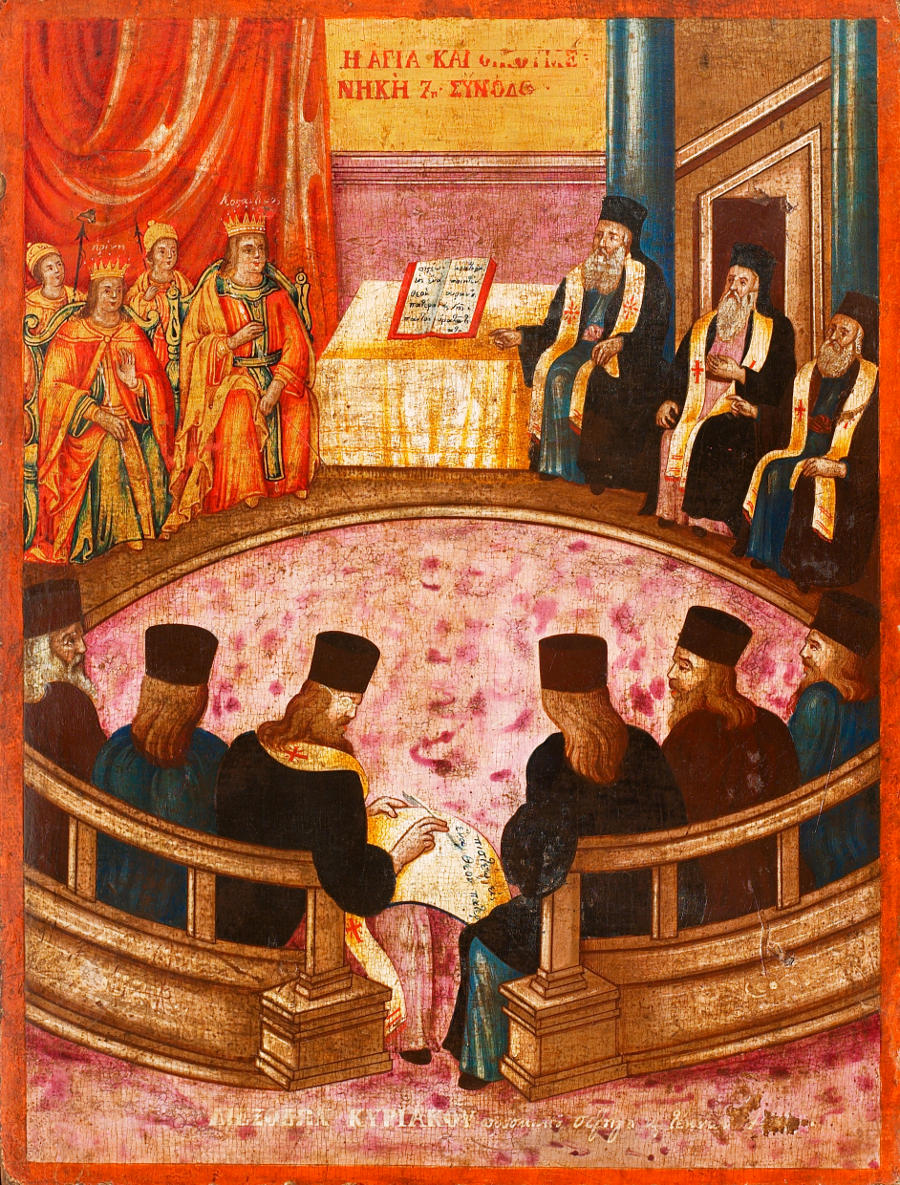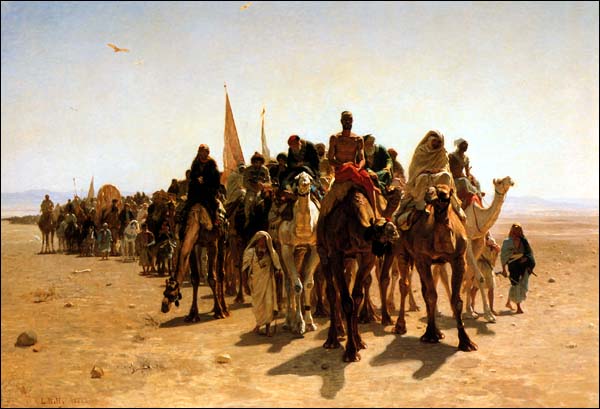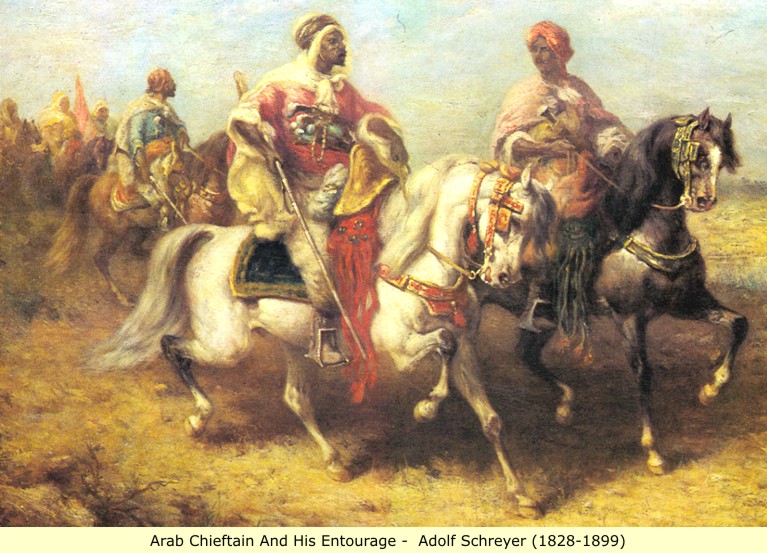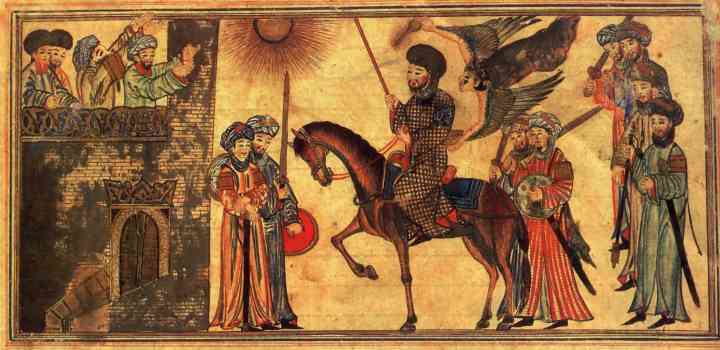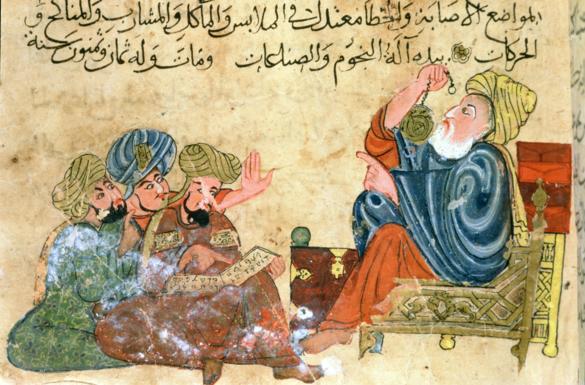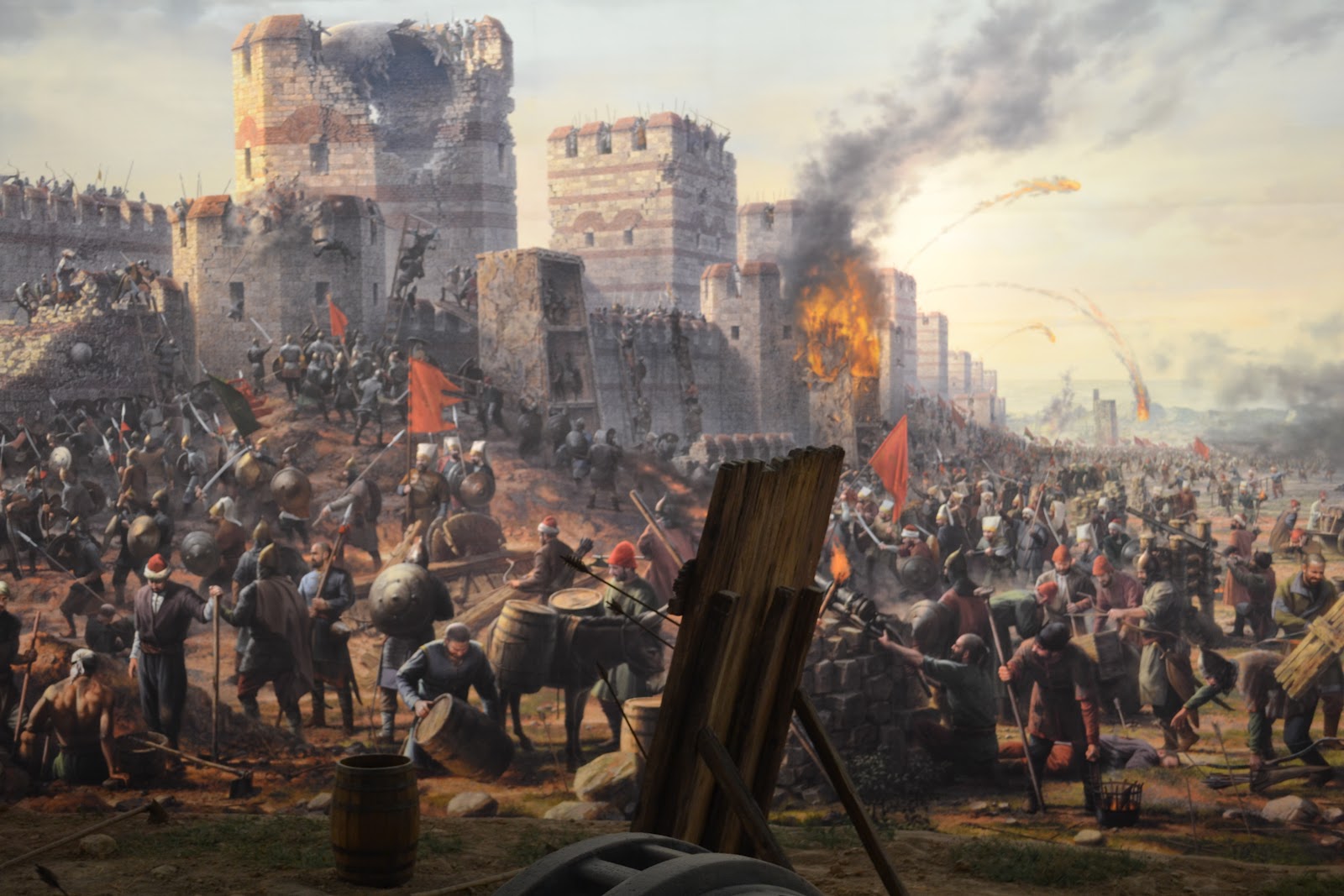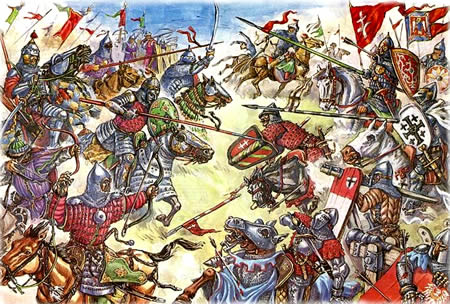
 |
|
he Eternal Observer Encounters with God, Creation and Religion The Wait I’ve waited and watched over millennia as the Almighty Supreme Being (ASB) frequently communicated with the sapient species of His creative ingenuity (that’s us). I took note of the ASB’s interventions to corral and control them and His attempts to placate and win them over. As I patiently wait for that apocalyptic time when the end of the world will no longer be nigh – I wonder if there might ever be another Great One, a Chosen One, a Mahdi, a Messiah. I’ve watched so long in hopeful expectation; but am fast accepting my lot as the forlorn eternal observer. The Almighty Supreme Being and Creation
Well, that all fell apart when they were caught-out behind the apple tree. And the hapless apple has ever since worn the blame to cover for them. In those days, the ASB mostly went under the nomenclature of Yahweh from the Hebrew language in which the early communications were recorded. Life was much easier way back in those days. There weren’t very many people and Yahweh could pretty much talk if not to all of them, then, at least, to the main characters. He certainly had a lot to say to Adam and Eve. He had made it clear what they shouldn’t eat. It was Eve who got caught with her mouth full and so copped the worst of Yahweh’s wrath: “And you will desire to control your husband, but he will rule over you” (Gen 3.16). Although I watched this pantomime unfold at the time, I’m still baffled that the outcome reduced Eve to a state of perpetual submission to be at Adam’s beck and call to do what she was being punished for! It wasn’t lost on me, even back then, that Yahweh was knowingly setting up a precedent for the way His male creations in the earthly world of the surrounds of Eden would treat His female creations.
I remember thinking at the time it was a bit disingenuous of Yahweh to express regret that He had created what anthropologists millennia later would call homo sapiens. I mean, He had the power to call it all off; but curiously continued to communicate extensively with Noah, to whom He had taken a liking. Yahweh gave Noah specific instructions and specifications for the building of an ark big enough for his extended family and a representative smattering of animals so He, Yahweh, could wipe out the rest and let Noah lead a revival. Yahweh Establishes a Messenger This new chapter in creation began with the first real appointment by Yahweh of someone on Earth that could claim to be His choice as a messenger or spokesperson. This was Yahweh’s first covenant with a mouthpiece from among His created homo sapiens. He told Noah “I have placed my rainbow in the clouds. It is the sign of my covenant with you and with all the earth” (Gen 9.13). It took a long time before it was fully realised that having the rainbow as a sign of His covenant was Yahweh’s way of continuing the commitment to sexual equality that had been manifest with Adam and Eve.
Actually, I think Yahweh rather enjoyed the spectacle with its thrills and opportunities for manipulation. He came to side with a clan He dubbed the Israelites and put all His money on them, so to speak. It wasn’t exactly a level playing field, with Yahweh frequently intervening to give the Israelites the upper hand. For Yahweh it was simply a game of thrones. Yahweh’s first foray into the world of tribal warfare, which became a veritable way of life for His mortals, was to nominate Abram as his favourite with whom He would have a special line of communication. Yahweh’s first instructions to Abram were: "Leave your native country, your relatives, and your father's family, and go to the land that I will show you. I will make you into a great nation” (Gen 12.1-2). Once Yahweh became confident that He’d made the right choice in selecting Abram, He further expanded His covenant with him. It made sense to change Abram’s name to Abraham signifying father of many nations, but I never understood why Yahweh was so obsessed with the next bit: “every male among you shall be circumcised. And you shall be circumcised in the flesh of your foreskin, and it shall be the sign of the covenant between Me and you” (Gen17.10-11). Maybe He could never let go of what happened at Eden. Problems Emerge in the Scheme of Things I can’t say I agreed with all Yahweh’s tactics. He certainly pushed the envelope with His stunt to get Abraham to sacrifice his son. It was really more to do with Yahweh’s self-assurance than testing Abraham’s loyalty. However, the relationship built a solid foundation for an everlasting, if diverse and even divisive, embrace between Yahweh and the vast majority of his creation – certainly of those who trace their heritage to Abraham’s clan or, at least, claimed to have inherited his values and ethics if not all his beliefs. I’m not sure if Yahweh planned it this way, but Abraham’s eldest son, Ishmael, and his mum were taken by Abraham to Mecca and stayed on there. Ishmael’s progeny grew into a nation of people that came to be called Arab; and would later include Muhammad amongst their number. But I’m jumping ahead.
Later commentators would refer to the Abrahamic heritage or tradition. It became a key component common to what many millennia later came to be described as the three great monotheist religions. Monotheist, of course, means believing in one god: so essentially Judaism, Christianity and Islam. Not that they all interpreted their heritage in the same way. Abraham’s message from Yahweh was expanded in His communications with Moses through the 10 commandments. All three monotheist religions adopted them, albeit with some nuances. Devotion, Obedience, Murder and Mayhem As the years rolled on, Yahweh took great delight in watching the ferocious battles between clans, tribes and individual champions. He particularly liked seeing the Israelites being hammered and brought to the point of abject defeat before stepping in and effecting a change of leader whom He would empower to take out the conquering tribe or tribes. Gideon was but one of many examples of this phenomenon (Judges 6). He revelled in the plagues, the trumpets that would bring down city walls, the fire balls that hit with digital precision and even the fleeing armies with their wounded and dying. The never-ending disputes, antagonisms, battles, wars between family units, clans and tribes continued and proliferated. That was simply the way of life virtually from the time when Yahweh created homo sapiens. The great advantage the Israelites had – this was the “great nation” that Yahweh told Abraham would become his – was its endorsement and support from Yahweh Himself. It prospered on that basis. There is a myriad of stories in the Torah, the Bible and the Koran that attest to the Abrahamic heritage. Basically, that remained the status quo for a long time. Given that the ASB was Himself eternal so temporariness was irrelevant to Him, it was surprising that He started to get bored with all his manipulations. By now the world had grown and people had dispersed across continents and oceans. The ASB didn’t really care much about them. Canaan – the land of the Israelites, the Levant (in 21st century speak Israel, Lebanon, Jordan, Syria) was His playground and the Israelites His toys. Maybe He had grown battle weary. He wasn’t even prepared to ‘play the game’ when the Assyrians moved in or when the Babylonians took most of the Israelites into captivity. A New Testament Begins It wasn’t until the Romans colonised and occupied the whole land that He finally sat up and decided to be Yahweh again. He plotted the most devious move of all. Even I, who thought that I has seen it all, was blown away with its audacity.
It couldn’t have worked out better for Yahweh. He simply had to spiritualise Himself into Jesus’ psyche. Nothing seen; nothing felt; no emotions altered. Jesus remained physically, mentally, intellectually and emotionally the same Jesus who was naturally conceived and born to Mary and Joseph. This was a very different Yahweh to the one I had become accustomed to; the Yahweh that had revelled in tribal warfare, manipulating the odds for the Israelites. Now it was a Yahweh who, through Jesus, was saying “Blessed are the meek. Blessed are the merciful. Blessed are the peacemakers. Love your enemies and pray for those who persecute you.” (Matt 5). Yahweh was careful not to sound too radical by cautioning his listeners “Do not think that I have come to abolish the Law or the Prophets; I have not come to abolish them but to fulfil them” (Matt 5). And the admonition that really had eyes rolling: “Do to others as you would have them do to you” (Matt 6).
I think He got to like being Jesus even if it was only at a spiritual level. It had been a long time since Yahweh had had any direct interaction with His mortals, His homo sapiens. He enjoyed having Jesus as a sort of alter ego as he (Jesus) engaged with his disciples and their families. Yahweh actually got to appreciate the real lives of ordinary people; the fun of playing with kids; the travails of making a living whether by fishing, cropping or herding. He was also exposed to the discontent of a people under foreign occupation. What Yahweh brought to the table was, of course, His all-knowing entity. He was ahead of even the latest of today’s modern scientific discoveries. So through Jesus He was able to pass off as miracles all manner of cures and resuscitations that are par for the course today; and get away with it. While it might be indulgently presumptive of me to speak on Yahweh’s behalf, I should point out that the situation of the ground at this time was politically and socially a universe or two away from what it was at the height of Yahweh’s involvement with the Israelites. Despite the inevitable resentment that comes with foreign occupation and the imposition of someone else’s laws and, especially, taxes, the prevailing Pax Romana was relatively benign. In fact, if it was asked what the Romans had ever done for Judea, the answer might have been a long list of economic and social benefits. The principal benefit was the Pax Romana itself: Judea was no longer a permanent tribal battleground. The Israelites, with Yahweh’s help, had pretty much vanquished their old tribal enemies. That probably made it easier for Rome to move its conquering army into Judea. But, at least, the Roman occupation squashed any remaining inter-clan disputes. So the prevailing ambiance was susceptible to messages of peace and harmony. The old days of clan warfare had long disappeared. Yahweh’s biggest problem was how to keep up the high pitch of interest in and commitment to Jesus. Jesus’ messages kept coming. He travelled widely through Judea. He socialised. He preached. He toiled. He garnered a huge popular following. Inevitably, he also set disenchantment rumbling amongst pillars of the Judean Establishment; and attracted the curious scrutiny of Roman informers.
Yahweh felt pretty pleased about it all. Jesus’ immediate legacy was a solid cadre of disciples deeply imbued with the ideals, values, morals and virtues of the Jesus Movement; strongly motivated and committed to spreading them not only throughout Judea but way beyond its borders; and supremely able to carry the message through both the spoken and written word. The Jesus Movement rapidly spread into Asia Minor and later throughout the Roman Empire. Concurrent with Christianity’s (as the Jesus’s Movement came to be called) spread westwards, most of the traditional Judean social norms e.g. the subjugation of women, became obsolete. But old habits die hard. One unexpected phenomenon was the rapidity with which Christianity spread beyond not only Judea but the Judean diaspora of Asia Minor. That meant that Hebrew was replaced initially by Greek and then Latin as the lingua franca of the movement. The ASB took on the new nomenclature of God. Teachings and Bureaucracies As often happens, however, disappointment follows hot on the heels of elation. The purity and simplicity of the hallmarks of Christianity – the teachings of Jesus – soon became captive to the machinations of the control-obsessed administrators. Before long there emerged a maze of complex, self-serving bureaucracies that invented a myriad of doctrinal and moral detail that transformed the Jesus Movement into a prescriptive dogmatic prison. Yahweh was despondent. It took over 500 temporal Earth years – a fleeting moment for the ASB – before the ASB or God, as He was being called within His newly created great nation of Christianity, decided to have another foray into the life of his homo sapiens mortals. Monotheism for the Third Time Round!
Although Yahweh had great plans for Isaac, He had a soft spot for Ishmael. He’d told Abraham: “Isaac is the son through whom your descendants will be counted. But I will also make a nation of the descendants of Hagar's son [Ishmael] because he is your son, too" (Gen 21.12-13) Abraham visited them in Mecca a couple of times. On at least one of these occasions Yahweh finally stepped in and laid the foundations for His longer term plans. Yahweh got Abraham and Ishmael to build what later would become known as the Kaaba – the sacred centre of the Mecca Mosque (Quran 2.127). But that would be much later. For now, Yahweh simply wanted a holy place for Himself to be honoured by Ishmael and his descendants (Quran 22.26-29). At first Ishmael wasn’t all that happy about being separated from his extended family in Canaan but he soon warmed to the idea of being someone who stood out and was deferred to by the locals. And he knew he would have Yahweh’s support so long as he worshipped at the new holy place. The Ishmaelites grew into the great nation Yahweh had promised. They developed their own culture and language; and became known to neighbouring tribes as Arab and their language Arabic, which kept the essentials of Ishmael’s native Hebrew. However, they drifted from the beliefs that Yahweh had imparted to them and took up worshipping all sorts of idols. In parallel with the descendants of Ishmael’s brother in Canaan, the Ishmaelites continued the life of tribal warfare. This way of life was a complex mix of tradition, survival, occupation and entertainment. there were drastic changes to this way of life for Isaac’s descendants brought about by the Assyrian, Babylonian and Roman invasions as well as the impact of the Jesus Movement, none of these factors or any similar factors had the same sort of impact on Ishmael’s descendants. They continued their intertribal animosities long after Canaan had been subdued and the Israelites dispersed. The ASB was quick to pick up on this situation. While He had done an about-turn with His abandonment of interventions with the Israelites and His new-found preference for the ideals of the Jesus Movement, He was still haunted by nostalgia for the ‘good old days.’ He saw in the Ishmaelites the opportunity to get back into the fray. Moreover, He felt He had let their idolatry run unhindered for far too long. By now, of course, the nomenclature of Yahweh was relevant only to the remnants of the Israelites who stuck with Judaism. The God nomenclature had expanded with the growth of Christianity; and had even mutated into a triangle of God the Father, God the Son and God the Holy Ghost. That had been about the last straw for the ASB. He needed to move on. Amongst the Ishmaelites, with their Arab culture and language, He would use the new nomenclature of Allah. Enter Muhammad and Islam
Allah was protective of this boy, Muhammad, as he grew up. He often intervened to ensure Muhammad was not unduly influenced by idolatry or licentiousness. Allah would have preferred Muhammad might have lead a more ascetic life rather than steeping himself in the rough and tumble world of traveling merchants. But that wasn’t an obstacle. Muhammad developed into a sound and stable man of solid values. Perfect for Allah’s plans. Allah didn’t much want to repeat the open and direct interventions he had with Adam and Eve, Noah, Abraham, Moses etc. He was more inclined to come up with another scheme. He had been pleased with his avatar model with Jesus but didn’t want to repeat that. He wanted to be a little subtler. He would come to do this by manipulating Muhammad’s dreams – both night and day dreams. Allah often referred to this strategy as his inception modality.
Muhammad persisted with and expanded his preaching. The backlash was strong. His teachings were a direct threat to both the religious traditions of paganism and the commercial benefits of the pilgrimages attached to it. Opposition grew from ridicule to violence. Muhammad and his followers soon moved to Medina where the opposition was far less rabid. They were referred to by Arabic words based on the three consonants S L M meaning ‘one who submits’. (Like Hebrew, Arabic has no vowels, so S L M could be rendered as Islam or Muslim.) Muhammad and his followers called themselves Muslims.
Following the Battle of Badr, where the Muslims had a significant victory, Muhammad moved on Mecca. With every battle from Medina to Mecca, the new religion of Islam with Allah as its object of worship and Muhammad as its preacher took stronger root. Allah was pleased. It wasn’t long before Muhammad took control and united the principal tribes of Mecca and Medina into an army of and for Islam. For Allah, this was just as it used to be with the great warriors of the Israelites. Whether the ASB was known as Yahweh or Allah or simply God (He drew the line at Father, Son and Holy Ghost), it didn’t matter to Him. He was the ASB; and that’s all that mattered.
Fortunately, as Islam spread, the early uncompromising fervour abated; and gave way to great and impressive centres of learning, science, culture and the arts in places like Baghdad, Cordoba and Samarkand. That lasted for centuries and led to a revival of everything classical as well as advancing amazing mathematical and scientific revelations. Allah was overjoyed at these developments, and couldn’t help commenting that it was now the older established Christian centres that were learning from the newer Islamic ones.
At least, it eventually settled down. The armies went home. Heroes were feted: Richard the Lionheart, Saladin; but nothing was really resolved. The Israelites would regroup and reclaim a stake in the Judea they had wandered from during past invasions. The Muslims would lock in their hold on vast tracts of land which mostly had become nations with colonially-enforced borders that divided natural allegiances amongst clans and tribes. Christians consolidated their influence in the areas of the old Roman Empire and its successor and related dynasties, culminating in its own Papal Empire. Harmony wasn’t exactly the prevailing milieu. It All Comes Unstuck
Perhaps the most tragic thing for the ASB was that He was facing an ever increasing number of His Israelite and Christian homo sapiens (He did come to wonder about the appropriateness of the sapiens epithet) who doubted His very existence; and now He had to watch so many disillusioned youths from His Muslim homo sapiens (He could barely abide the use of the epithet in this context) abandoning every element of the Islamic faith He had created; and, worst, claiming to be acting in His name! The only small consolation the ABS lives with is the inevitability of the end. It is nigh. In fact, for the ASB, it’s a blink or two away. But for the mortals whom He has saddled with temporariness, it’s still a few million Earth years away. |
